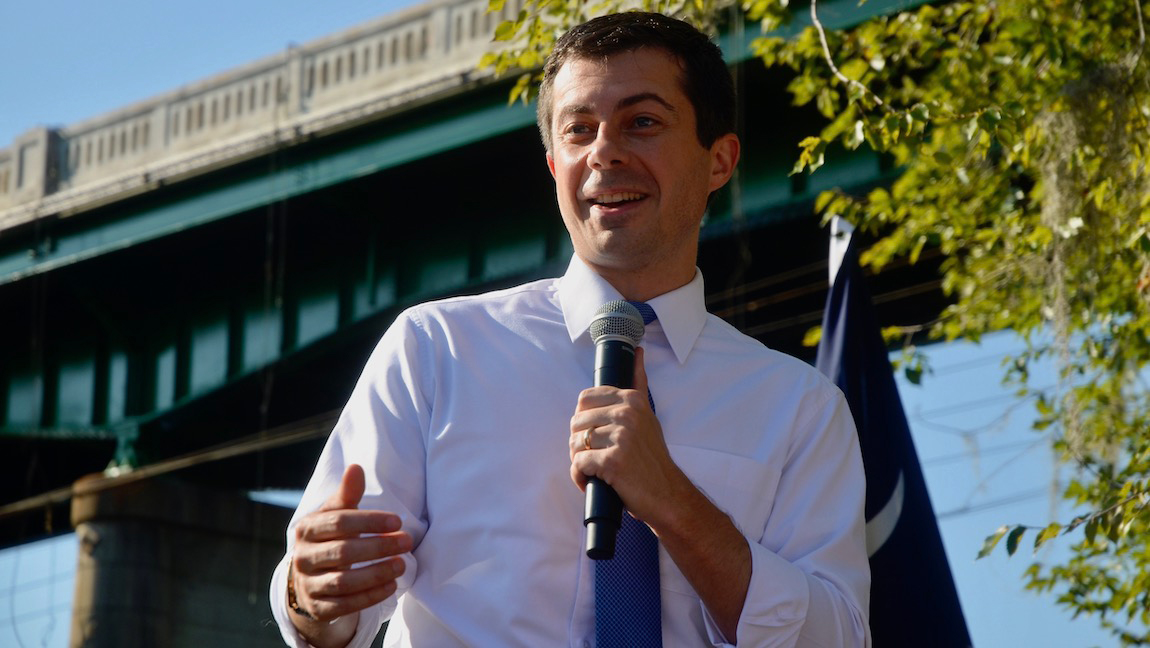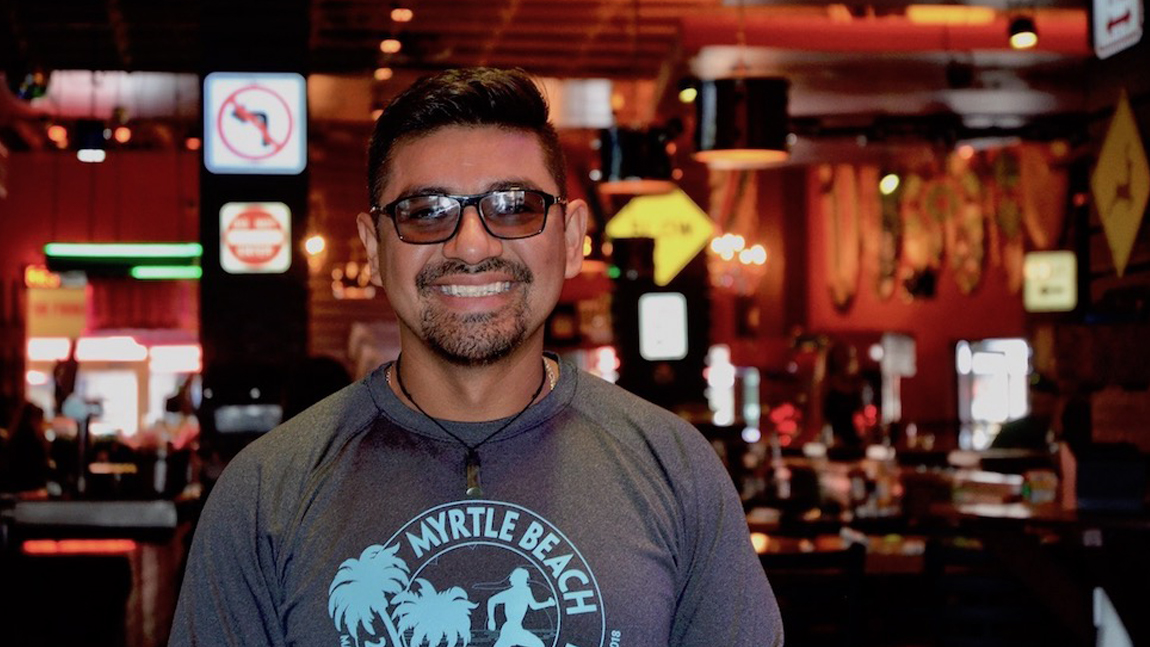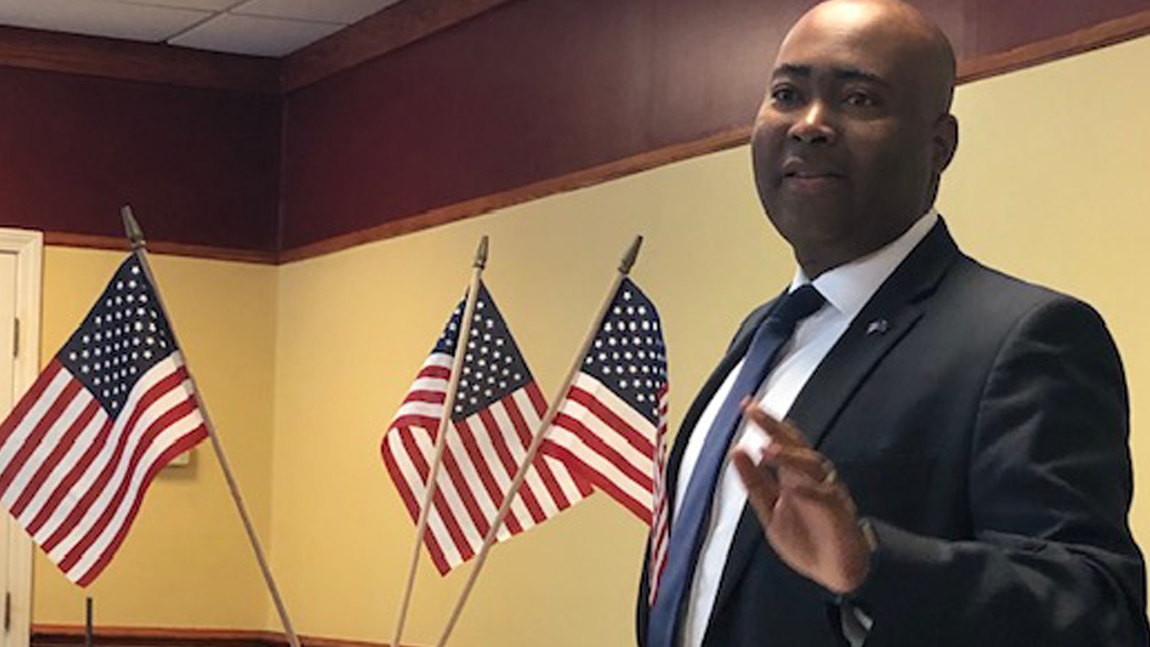Standing on the banks of the Waccamaw River, which caused massive destruction and damage when Hurricane Florence ravaged Conway last September, Democratic presidential candidate Pete Buttigieg unveiled a new disaster relief plan designed to help communities cope with such storms, which he predicted will grow more frequent and increasingly severe due to climate change.
“As a mayor, I’ve seen the frustration that sets in for local communities when federal disaster response falls short, or takes too long, or is delivered in a confusing fashion that leaves local authorities, nonprofits, and state officials scrambling to cover for gaps and delays,” Buttigieg said.
The South Bend, IN mayor pledged to create a community-centered Disaster Commission within his first 100 days in office. The commission would be charged with communicating between federal and local agencies and organizations during disaster recovery.
The commission’s goals would be to improve relief applications, assist in data collection, participate in auditing and formulate a stable source of funding for recovery, Buttigieg told his audience on the Conway Riverwalk.
“Climate change has only exacerbated the need to improve our disaster preparedness,” Buttigieg said. “The science is clear: catastrophic weather events are increasing in frequency, intensity, and impact.”
Buttigieg, who received the key to the city of Conway from Mayor Barbara Jo Blain-Bellamy, pointed out that Hurricane Florence was the second “1,000-year flood” to hit Conway in three years, a development that he blamed on the impact of climate change.
“That’s not natural,” he said, adding that the U.S. cannot simply “rearrange the weather with a Sharpie on a map.”
In addition to the commission, Buttigieg said he would restore funding to the Federal Emergency Management Agency (FEMA), which he said had lost resources that had been redirected to President Trump’s wall, even as Hurricane Dorian was moving towards the U.S. after having devastated the Bahamas.
And, he said he would provide job protection to volunteers in the FEMA Corps., a service corps of volunteers who are deployed to assist communities affected by natural disasters. Currently, those workers have no guarantee that their jobs back home will be waiting for them when they return. “That will end,” he said.
Following his speech, Buttigieg answered several questions from the audience. In those responses, he said that he would:
- End child separation policies of the Trump administration that are tearing immigrant families apart.
- Cap the cost of prescription drugs, allow the government to negotiate prices, even for private plans, and severely punish manufacturers of new, life-saving drugs who price-gouge patients in need.
- Establish a commission to evaluate ways to remove political influence from the Supreme Court.
- Support H.R. 40, which would establish a commission to study and develop reparation proposals for African American descendants of slaves.
- Invest $25 billion in historically black colleges and universities and direct $10 billion toward black entrepreneurs.
- Build up a workforce of mental health providers and provide “billions of dollars in healing and belonging” grants.
- Refuse to allow President Trump to change the subject and divert attention when he is embroiled in a controversy. “The less we’re talking about him, the more we’re talking about you,” he said.






